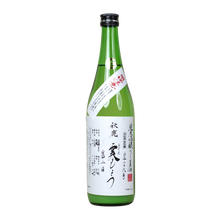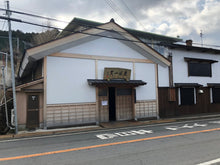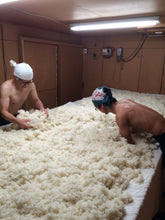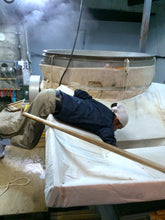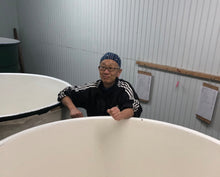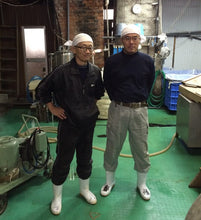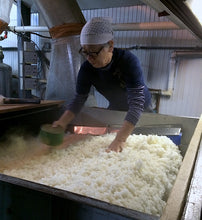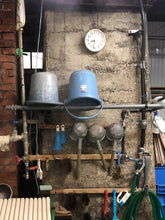
Classifications
Junmai • Pure Rice Sake
Muroka • No charcoal filtration
Nama • Unpasteurised
Genshu • Undiluted
Nigori • Cloudy
Specifications
Rice: Yamada Nishiki
Yeast: #901
Alcohol: 17%
Polish rate: 60%
Format: 720ml
Year: 2024
The Mizore Moyo is unique as it is produced by reserving a third of the Moromi (fermenting liquid) which is then mixed back into the already pressed liquid. This results in a sake with a large amount of very fine sediment and often produces a little gas on opening.
What you can expect:
Aroma of sweet ricey fresh ferment. On the palate, a complex and flavourful brew with dry and bitter finish. Beautiful sipper.








